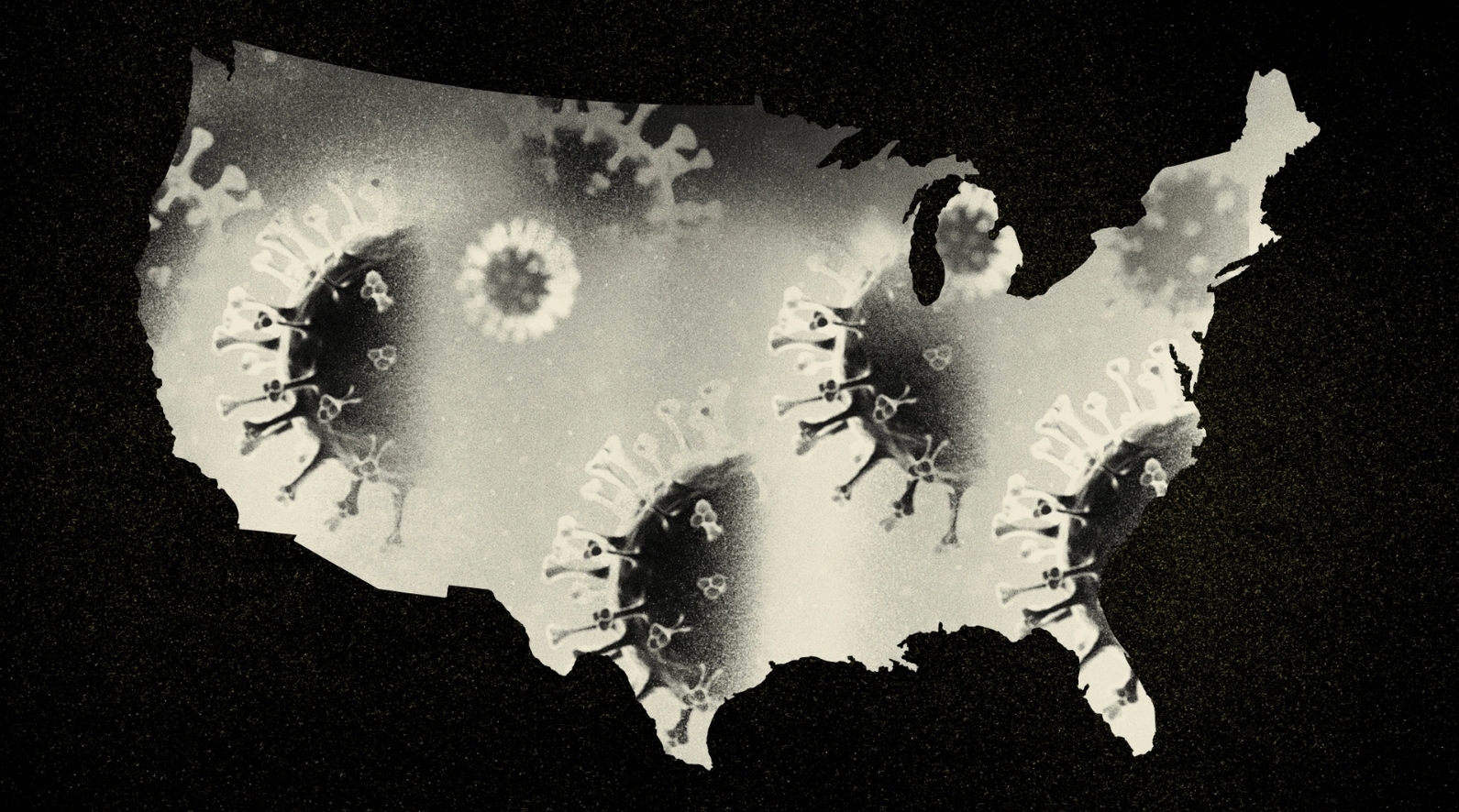Welcome to DU!
The truly grassroots left-of-center political community where regular people, not algorithms, drive the discussions and set the standards.
Join the community:
Create a free account
Support DU (and get rid of ads!):
Become a Star Member
Latest Breaking News
Editorials & Other Articles
General Discussion
The DU Lounge
All Forums
Issue Forums
Culture Forums
Alliance Forums
Region Forums
Support Forums
Help & Search
General Discussion
Related: Editorials & Other Articles, Issue Forums, Alliance Forums, Region ForumsAmerica's Patchwork Pandemic Is Fraying Even Further
The coronavirus is coursing through different parts of the U.S. in different ways, making the crisis harder to predict, control, or understand.https://www.theatlantic.com/health/archive/2020/05/patchwork-pandemic-states-reopening-inequalities/611866/

There was supposed to be a peak. But the stark turning point, when the number of daily COVID-19 cases in the U.S. finally crested and began descending sharply, never happened. Instead, America spent much of April on a disquieting plateau, with every day bringing about 30,000 new cases and about 2,000 new deaths. The graphs were more mesa than Matterhorn—flat-topped, not sharp-peaked. Only this month has the slope started gently heading downward. This pattern exists because different states have experienced the coronavirus pandemic in very different ways.
In the most severely pummeled places, like New York and New Jersey, COVID-19 is waning. In Texas and North Carolina, it is still taking off. In Oregon and South Carolina, it is holding steady. These trends average into a national plateau, but each state’s pattern is distinct. Currently, Hawaii’s looks like a child’s drawing of a mountain. Minnesota’s looks like the tip of a hockey stick. Maine’s looks like a (two-humped) camel. The U.S. is dealing with a patchwork pandemic. The patchwork is not static. Next month’s hot spots will not be the same as last month’s. The SARS-CoV-2 coronavirus is already moving from the big coastal cities where it first made its mark into rural heartland areas that had previously gone unscathed. People who only heard about the disease secondhand through the news will start hearing about it firsthand from their family. “Nothing makes me think the suburbs will be spared—it’ll just get there more slowly,” says Ashish Jha, a public-health expert at Harvard.
Meanwhile, most states have begun lifting the social-distancing restrictions that had temporarily slowed the pace of the pandemic, creating more opportunities for the virus to spread. Its potential hosts are still plentiful: Even in the biggest hot spots, most people were not infected and remain susceptible. Further outbreaks are likely, although they might not happen immediately. The virus isn’t lying in a bush, waiting to pounce on those who reemerge from their house. It is, instead, lying within people. Its ability to jump between hosts depends on proximity, density, and mobility, and on people once again meeting, gathering, and moving. And people are: In the first week of May, 25 million more Americans ventured out of their home on any given day than over the prior six weeks.
I spoke with two dozen experts who agreed that in the absence of a vaccine, the patchwork will continue. Cities that thought the worst had passed may be hit anew. States that had lucky escapes may find themselves less lucky. The future is uncertain, but Americans should expect neither a swift return to normalcy nor a unified national experience, with an initial spring wave, a summer lull, and a fall resurgence. “The talk of a second wave as if we’ve exited the first doesn’t capture what’s really happening,” says Caitlin Rivers, an epidemiologist at the Johns Hopkins Center for Health Security. What’s happening is not one crisis, but many interconnected ones. As we shall see, it will be harder to come to terms with such a crisis. It will be harder to bring it to heel. And it will be harder to grapple with the historical legacies that have shaped today’s patchwork.
I. The Patchwork Experience..........
snip
1 replies
 = new reply since forum marked as read
Highlight:
NoneDon't highlight anything
5 newestHighlight 5 most recent replies
= new reply since forum marked as read
Highlight:
NoneDon't highlight anything
5 newestHighlight 5 most recent replies
America's Patchwork Pandemic Is Fraying Even Further (Original Post)
Celerity
May 2020
OP
alittlelark
(18,976 posts)1. Here in NM I see soooo many Texas license plates lately.
Way too many. ![]()